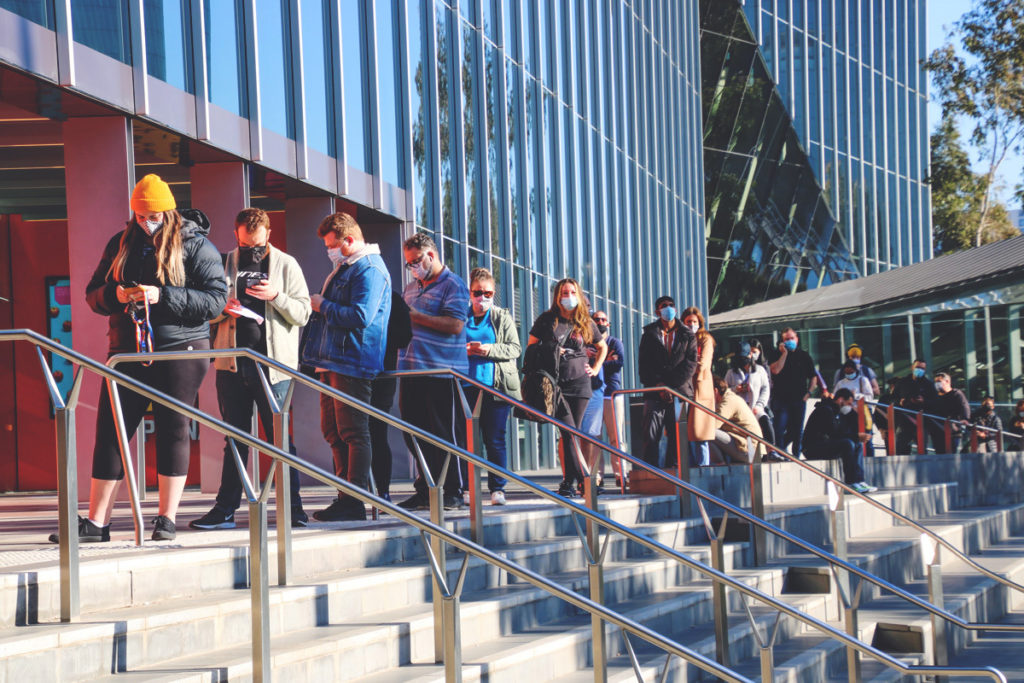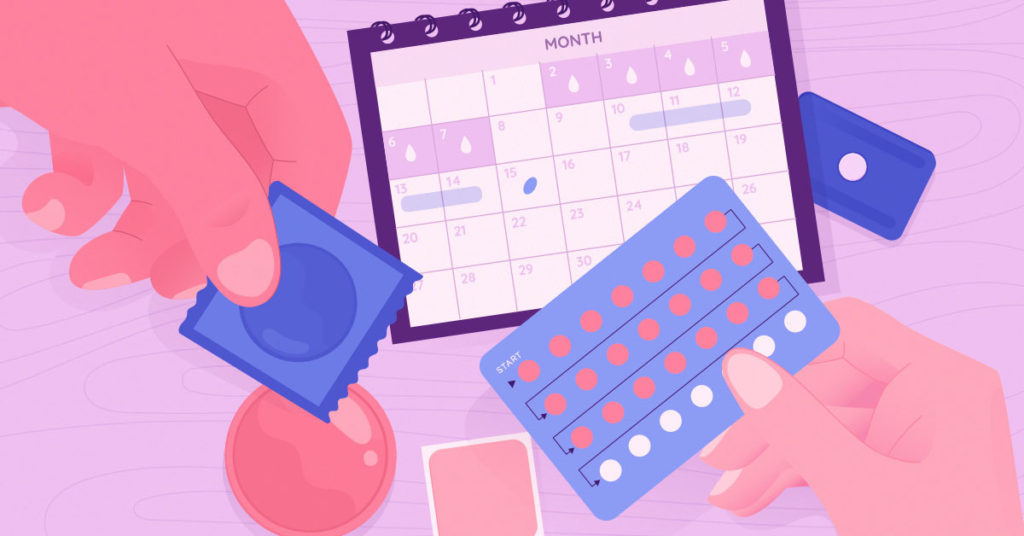Updated 18 August 2021 to include future name change of AstraZeneca vaccine.
Nearly 15 million people in Australia have received at least one COVID-19 vaccine. During the different vaccine rollout stages, you need to meet certain criteria to be eligible to be vaccinated.
As an international student, there is some extra preparation you will need to do before getting your first dose. Here’s what you need to know about the COVID-19 vaccine as an international student in Australia.
Article updated 16 August to include information about the Moderna vaccine.
Am I eligible to be vaccinated?
In Australia, COVID-19 vaccines are free for everyone, but your eligibility to receive a vaccination is subject to both national and state regulations.
Nationally, the major groups that are eligible for vaccination include:
- Temporary visa holders aged under 50 who are currently in Australia and have been approved for return travel to Australia through the travel exemption process.
- Any adult aged 40 and over.
- Anyone aged 16 and over with an underlying medical condition or significant disability.
- Anyone working in at-risk industries, such as quarantine, borders, health, disability, and aged-care (including occupations like cleaners and kitchen staff).
- Essential and high-risk workers aged 16 and over, including those working in defence, police, fire, emergency services and meat processing.
- All Aboriginal and Torres Strait Islander people aged 16 to 49.
- National Disability Insurance Scheme (NDIS) participants, and carers of NDIS participants, aged 16 and over.
- Household contacts (aged 16 and over) of quarantine and border workers.
Many states and territories have selected additional groups who can receive a COVID-19 vaccine:
Northern Territory – anyone aged 16 and over.
Western Australia – anyone aged over 16.
South Australia – anyone aged 16 and over.
Victoria – extended the COVID-19 eligibility criteria more than the other states, with additional eligible groups including, but not limited to, the homeless, public transport drivers, and those living in public housing.
Queensland – household contacts of at-risk workers, such as quarantine, border or healthcare workers, can be vaccinated regardless of age.
So far, New South Wales, Tasmania, and the Australian Capital Territory are the only states that have not added groups outside of the Federal Government’s list for COVID-19 vaccination eligibility.
The government has also created an online Vaccine Eligibility Checker*, so you can easily find out whether or not you are eligible to receive a COVID-19 vaccine in your state.
*Note: There may be some delays between government announcements and the eligibility checker, e.g. those aged 16+ in South Australia may still be deemed ineligible by the Vaccines Eligibility Checker. Always double-check your state or territory government’s website and follow the instructions they provide.
Note: On 28 June the Federal Government announced that anyone under 40 can now request the AstraZeneca vaccine from their local general practitioner. The Australian Medical Association has confirmed the news. Insider Guides will provide updates when more information becomes available.
What do I need to prepare before getting vaccinated?
In order to receive a vaccine in Australia, you must have an Individual Healthcare Identifier (IHI).
If you have a valid Australian visa, driver’s license, or passport, you can apply for an IHI online. In order to apply for an IHI, you must first have a MyGov account, which you can create through this link.
If you do not have any of those documents, you can request an IHI with a form, as long as you provide other documents to verify your identity.
Which vaccine will I receive?
The Therapeutic Goods Administration has approved 3 vaccines for use in Australia:
- Pfizer vaccine
- AstraZeneca vaccine (note: the AstraZeneca vaccine will soon be renamed ‘Vaxzevria’ to prevent possible issues when people living in Australia are allowed to travel overseas in the future)
- Moderna vaccine
According to ABC News, a single-dose vaccine made by Johnson & Johnson has also been approved by the TGA, but has not yet been purchased to be used as part of the national rollout.
The vaccine you receive will depend on:
- When and where you will be vaccinated
- The clinical guidelines that determine who each vaccine is safe for.
In line with the advice of the Australian Technical Advisory Group on Immunisation (ATAGI) the Pfizer vaccine will be prioritised for people under 60 years of age. The AstraZeneca vaccine will be prioritised for people aged 60 years and over.
The TGA says Australians aged over 18 can get the Moderna vaccine, however, the federal government is yet to set any eligibility requirements for it. Moderna will supply 25 million doses from late 2021.
The ABC have answered more commonly asked questions about Moderna here.
Do I need approval from my Overseas Student Health Cover (OSHC) provider to get vaccinated?
We reached out to Medibank to find out whether international students need to receive approval from the OSHC provider before getting a COVID-19 vaccination.
A Medibank spokesman says, “International students in Australia with Medibank or ahm OSHC, are not required to notify Medibank before or after receiving the vaccine.”
“It’s important that students attend a Commonwealth or State/territory vaccination clinic to ensure that they don’t incur any out-of-pocket expenses when they receive the vaccine. If they are unsure of where to go, or they are being asked to pay a fee, they should contact the COVID-19 vaccine helpline on 1800 020 080 (or 13 14 50 for translating and interpreting services), or call Medibank on 134 148 for general advice on navigating the healthcare system.”
To be certain of your OSHC provider’s policies, you should contact your provider directly to check. For more details on how OSHC providers across Australia are responding to COVID-19, and their contact information, click here (note: article correct at time of publication).
Why has the COVID-19 vaccine rollout been so slow in Australia?
Australia’s COVID-19 vaccine rollout has faced criticism. While the Australian Government has five separate agreements for the supply of COVID-19 vaccines, currently only two (AstraZeneca and Pfizer) are being actively used in the country.
In 2020, the government delayed making deals with vaccine producers, such as Pfizer, in the hopes Australia could manufacture all of its required COVID-19 vaccines onshore.
After these plans failed, a large order of AstraZeneca vaccines from Europe were delayed earlier this year.
Recent reports of the AstraZeneca vaccine causing fatal blood clots has left many people in Australia concerned over the safety of COVID-19 vaccines, and led to the government selecting Pfizer as the preferred vaccine for people aged under 60. However, it is important to note that before a COVID-19 vaccine is approved for use in Australia, it must pass the Therapeutic Goods Administration’s careful assessments of safety, quality and effectiveness. The AstraZeneca vaccine is still considered safe to use, with the chance of developing blood clots similar to being struck by lightning in Australia (i.e. extremely rare).
At the current rate of vaccinations, the entire adult population of Australia is expected to be fully vaccinated by April 2022.
For more information on COVID-19 vaccines, click here.





